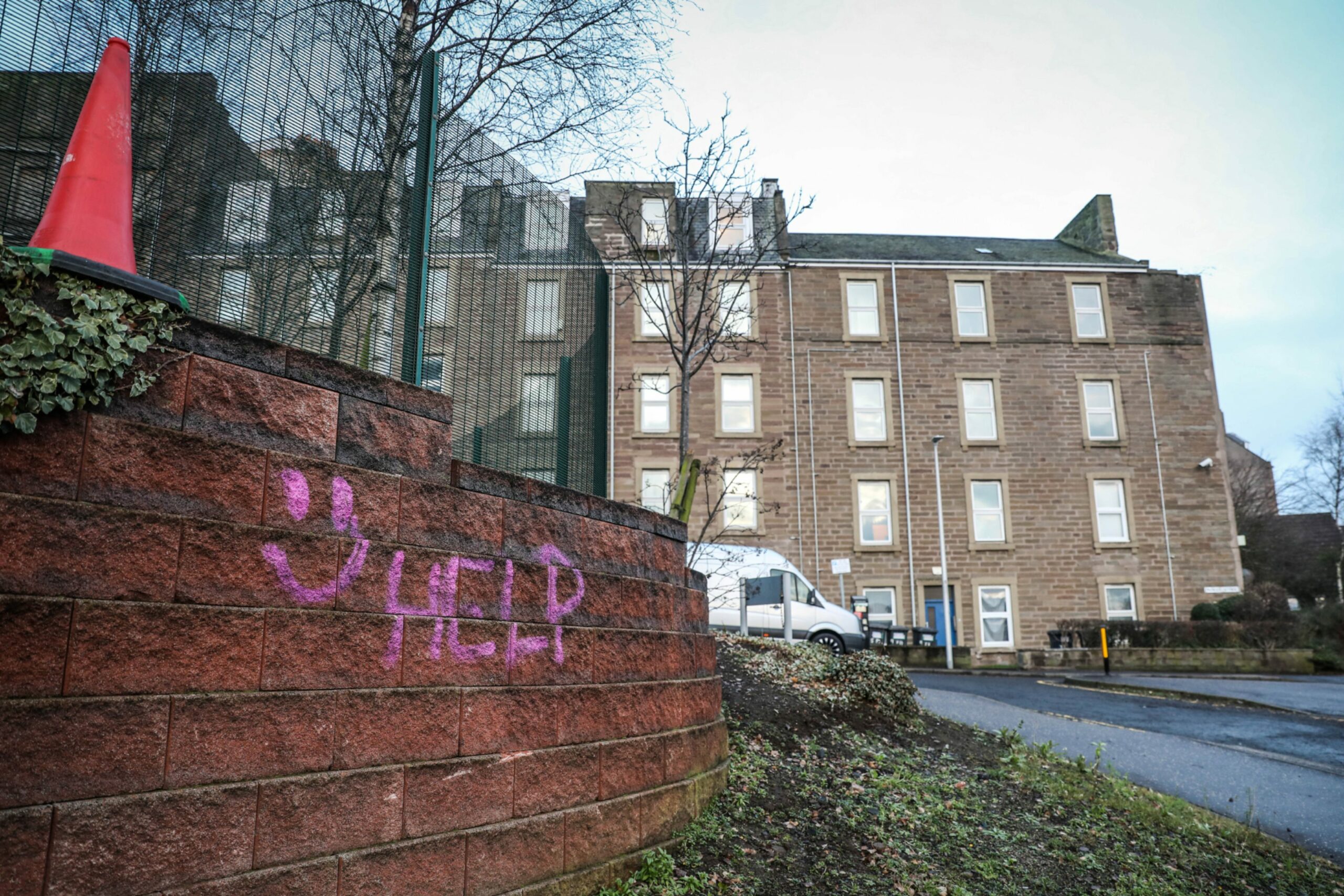The Scottish Government has passed several bills giving tenants rights across the private rented sector.
But some tenants don’t know their rights and how they can get repairs fixed, oppose rent increases and fight eviction.
In a Courier investigation, we revealed the lives of those struggling in flats with poor heating, poor insulation, mould and damp.
However, a wide range of support services is available for people facing problems with their landlord.
Here, we examine what rights tenants have in Scotland, what responsibilities landlords have and what you can do if there is a dispute.
What are tenants’ rights in Scotland?
The private rented sector in Scotland is mostly unregulated, but the Scottish Government has made significant efforts to make the sector safer, more professional and to ensure homes meet a certain standard.
This act gave tenants new rights as well as key responsibilities to be upheld by both the tenant and landlord.
The Act protects tenants from excessive rent hikes and from being kicked out unfairly, while compelling the tenant to observe minimum tenancy periods.
The Scottish Government said it would add “security, stability and predictability for tenants and appropriate safeguards for landlords”.
This and previous housing acts introduced rights for tenants who are legally renting from a landlord or letting agency.
Your tenants’ rights also protect you from discrimination, abuse and harassment which were reported to be at a five-year high by Dundee Citizens Advice Bureau.
How much notice does a landlord need to give a tenant to move out?
In 2017, new rights were added that some tenants may not be aware of.
Most notably, when you enter into a tenancy agreement with your landlord in Scotland, it is an open-ended contract, there is no end date. This is a change from fixed-term tenancies.
In Scotland, your tenancy now lasts until you give notice to leave or handed an eviction notice.
If your current tenancy has existed for less than six months then your landlord only needs to give you 28 days’ notice. It is also 28 days if you have broken your tenancy agreement.
However, if your tenancy has existed for more than six months you are entitled to 82 days’ notice of eviction. In all cases you have a right to be clearly notified and challenge your eviction.
As a tenant who wants to end the tenancy, you must give 28 days’ notice to the landlord. You must give clear notice to your landlord or letting agency so they know – procedures how to notify your landlord is often laid out in the tenancy agreement.
How much can my landlord increase my rent to?
If a landlord decides to increase the rent on a private tenancy there are certain rights that come into play in Scotland.
You are protected from “excessive rent” increases.
First, your landlord must give you at least three months notice before a rent increase.
They are also limited to one increase every 12 months.
You also have the right to challenge your landlord on rent increases.
This might involve negotiating with your landlord to come to an agreement.
If this fails and you still feel the rent increase is unfair you can apply for an opinion from a rent officer from Rent Service Scotland. It can step in and adjust rent based on a range of information. It can however adjust it either way.
If you disagree with a rent officer’s decision then you can apply to the housing tribunal.
However, if landlords apply to the Scottish Government, through Rent Services Scotland, they may be able to raise it to 6% to cover additional costs like mortgages.
This bill also prevents evictions except in a number of set-out specific circumstances.
These exceptions include
- Anti-social or criminal behaviour
- If the tenant abandoned the property
- The landlord is selling or moving into the property themselves
- The tenant has fallen into substantial arrears
For the public sector, substantial rent arrears means the equivalent to or over six months rents.
What are my tenants rights for repairs?
An investigation by the Courier revealed how tenants rights for repairs can be ignored.
Tenants rights in Scotland also protect you from living in a property considered intolerable or in disrepair.
Landlords are legally obligated to keep the property in a minimum living standard. Both at the “start” and at “all times” during the tenancy.
So when you visit a potential property or are at the beginning of your tenancy, be sure to check the property over for any issues.
Your responsibility as a tenant is to notify your landlord and give them a “reasonable time” to complete these repairs.
A property meets the repairing standard if:
- It is wind and water tight
- Heating, water and electricity are in working order
- Fixtures, appliances and food storage areas are in working order and safe to use
- Lighting is safe and in working condition
- Furnishings provided by the landlord or letting agency are safe to use
- Drains, pipes and gutters are in a reasonable state of repair
- It has the correct equipment for detecting fires and carbon monoxide leaks and all are in working order
It is your responsibility to inform your landlord when repairs are needed and give the landlord access for repairs or to investigate the repairs.
Your landlord however, should give you 48 hours’ notice before they or anyone arrives to carry out or inspect the repairs.
How long do landlords have to fix problems in Scotland?
While no specific time is given, as this would be determined by the extent of the repairs, it does specify that it is a “reasonable time” after the landlord is notified.
Therefore as a tenant, it is important to notify your landlord and keep evidence that you did notify them that repairs were needed.
Can I hold back rent due to outstanding repairs?
Some tenants have held back repairs to try to incentivise landlords to complete outstanding repairs.
However, experts and advice agencies do not encourage this as it gives your landlord grounds for eviction.
Even the Cost of Living emergency bill eviction ban will not protect you if you fall into “substantial rent arrears”.
It is tempting for some tenants as outstanding repairs can affect your health and ability to work.
What advice agencies recommend is that you contact your local authority and if you must apply for the housing tribunal.






Conversation